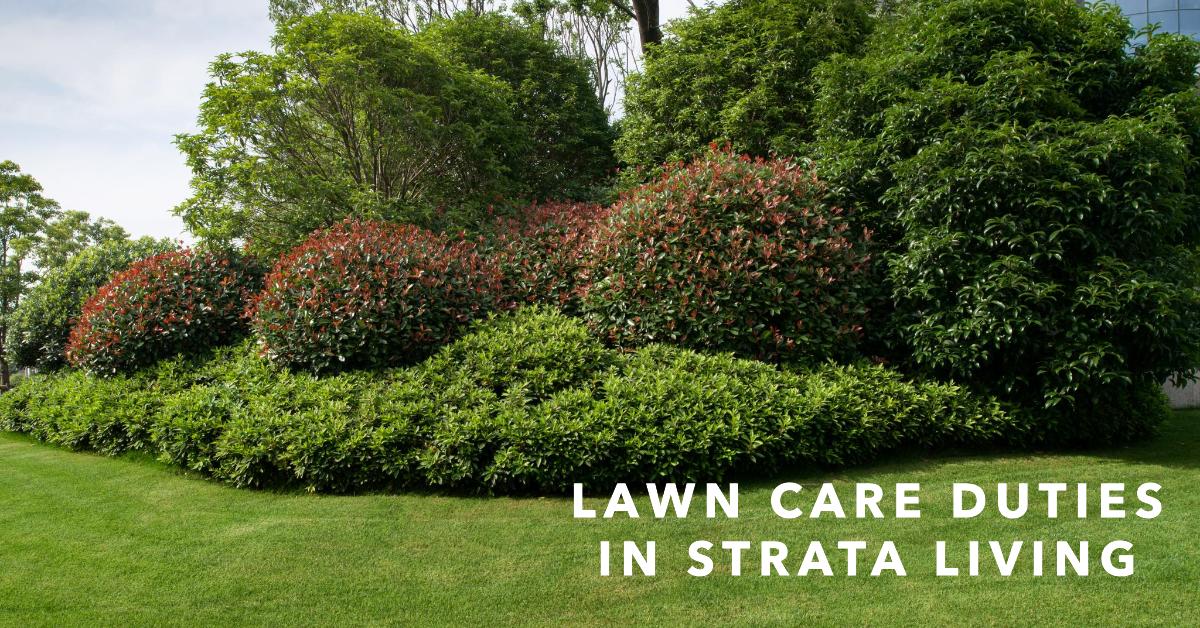In strata living, knowing lawn care duties is essential for community harmony. Legal rules and homeowner rights determine maintenance responsibilities. Contracts with caretakers outline clear duties to prevent misunderstandings. Efficient dispute resolution processes can maintain peace. Communication and seeking professional advice are important for beautiful lawns. Managing common areas is a shared responsibility overseen by the Body Corporate. Seasonal care by expert gardeners guarantees lush, pest-free lawns. For more details on maintaining a harmonious community through clear responsibilities, continue exploring the legal framework and expert advice provided.
Legal Framework for Lawn Care
In understanding the legal framework for lawn care in strata living, it’s important to grasp how laws and by-laws dictate the responsibilities concerning lawn maintenance. Legal obligations and homeowner rights play a vital role in determining who’s responsible for the upkeep of common property lawns.
As a resident in a strata living arrangement, you must comply with the established by-laws regarding personal lawn care duties. These by-laws are in place to guarantee that the overall aesthetics and functionality of the property are maintained to a certain standard.
Failure to adhere to these regulations can result in enforcement mechanisms being enacted by the owners corporation. Approval may be necessary for any changes or additions to your lawn maintenance routine to ensure that it aligns with the community’s guidelines.
Understanding your legal obligations as a homeowner within a strata living environment is paramount to fostering a harmonious community where everyone respects the rules in place.
Defining Responsibilities in Contracts
Responsibilities and duties within caretaker contracts for maintaining common property in strata living are meticulously outlined to guarantee clear understanding and accountability. These contractual obligations serve as a roadmap for both the caretaker and the body corporate, ensuring that each party fully grasps their role in preserving the common areas. By clearly defining the terms of the contract, potential misunderstandings can be minimized, fostering a harmonious relationship between the caretaker and the committee.
Within these contracts, it’s important to specify the exact responsibilities of the caretaker, including tasks such as lawn mowing, garden maintenance, and general upkeep of shared spaces. Any additional maintenance expenses that fall outside the caretaker’s obligations must obtain approval from the committee or owners, highlighting the importance of transparency and financial prudence.
In the event of disputes arising from ambiguous contract terms, seeking legal intervention or utilizing a tribunal may be necessary for resolution. Effective communication between the caretaker and the committee is paramount in managing expectations and preventing conflicts. By adhering to the defined contractual obligations and maintaining open lines of communication, both parties can work together harmoniously to ensure the upkeep of the common property in strata living.
Resolving Maintenance Disputes
When faced with maintenance disputes in strata living, managing the resolution process efficiently and effectively is crucial for maintaining a harmonious environment. Disputes regarding caretaker contracts may sometimes necessitate legal intervention for resolution, as amendments to these contracts must be approved at a general meeting. Please be aware that the BCCM Office does not handle contractual disputes related to maintenance, emphasizing the need for alternative dispute resolution methods.
To navigate maintenance disputes successfully, mediation services can play a pivotal role in facilitating constructive communication and reaching amicable solutions. By engaging in mediation, conflicting parties can work together with a neutral third party to address concerns, clarify responsibilities, and negotiate agreements. This process not only helps in resolving immediate disputes but also fosters better relationships among stakeholders in the long term.
| Benefits of Mediation Services | Description | Outcome |
| Facilitates Communication | Encourages open dialogue and understanding | Resolves misunderstandings and conflicts |
| Promotes Collaboration | Fosters teamwork towards mutual agreements | Enhances cooperative relationships |
| Provides Neutral Guidance | Offers impartial support for fair resolutions | Ensures equitable outcomes for all parties |
Incorporating mediation services into the dispute resolution process can lead to more harmonious strata living environments by promoting effective communication and collaborative problem-solving.
Importance of Communication and Professional Guidance
Enhancing lawn care practices in strata living hinges on fostering clear communication channels and seeking expert guidance from professionals in landscaping and garden maintenance. Effective communication strategies are important for ensuring all residents, strata committees, and caretakers are on the same page regarding lawn care duties. By engaging in open dialogue and setting up regular meetings, residents can stay informed about any changes in maintenance schedules or regulations.
Moreover, resident education plays a significant role in promoting a shared understanding of lawn care responsibilities. It’s essential for residents to familiarize themselves with the by-laws and guidelines related to lawn care within the strata property. This knowledge empowers residents to fulfill their duties effectively and contribute to maintaining a healthy and attractive outdoor environment.
Collaborating with landscapers and garden maintenance professionals through expert consultations can provide valuable insights into best practices. These professionals can assist in creating customized maintenance schedules tailored to different seasons, ensuring that the lawn remains in excellent condition throughout the year. By seeking expert advice, residents can proactively address any issues and prevent misunderstandings or conflicts related to lawn care duties in the strata living community.
Ensuring Common Area Upkeep
To maintain the pristine appearance of your strata property, ensuring the upkeep of common areas, such as lawns, is a shared responsibility overseen by the Body Corporate/Owners Corporation. Seasonal landscaping plays an important role in the maintenance of these common areas. By engaging professional gardeners who specialize in turf management, your strata property can enjoy lush, green lawns throughout the year. These experts work closely with the Body Corporate/Owners Corporation to create custom maintenance schedules tailored to the seasonal needs and preferences of your property.
The services provided for common area lawn care go beyond mere mowing. Regular weeding, fertilizing, and pest control are essential components of a detailed turf management plan. These tasks ensure that the common areas remain healthy and visually appealing. Proper lawn care not only enhances the aesthetic appeal of your strata property but also contributes to its overall value.
Conclusion
To sum up, comprehending lawn care duties in strata living is crucial for a harmonious community.
By understanding the legal framework, defining responsibilities in contracts, resolving disputes, and communicating effectively, you can guarantee the upkeep of common areas.
Remember, clear communication and professional guidance are key to maintaining a beautiful and well-maintained environment for all residents to enjoy.
Stay proactive, stay informed, and watch your strata community thrive.


